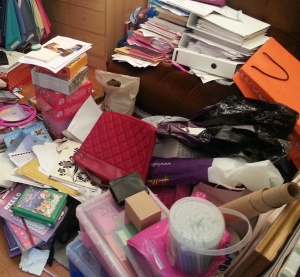 We’re in unprecedented times. The Covid-19 pandemic has contributed to us experiencing unprecedented emotions. So much so that there’s a new word for our ups and downs: the ‘coronacoaster’.
We’re in unprecedented times. The Covid-19 pandemic has contributed to us experiencing unprecedented emotions. So much so that there’s a new word for our ups and downs: the ‘coronacoaster’.
- One day you may feel absolutely fine, as though life feels manageable and in control and solid.
- Another day, you may feel as though you’re in panic, freaking out about the reality of what’s happening.
- Other days you may feel so low that you can barely move: all the plans you’d had for this ‘time off’ may have come to nothing, and you may be beating yourself up for being unproductive.
All of the above may be your ‘new normal’. It can feel weird to have so many emotional ups and downs – and perhaps rather cliche to call this a ‘rollercoaster’. However, in our lifetime we haven’t been through this before: separated from our loved ones, being in an enclosed environment for days and weeks on end, and not having any certainty or security about what will happen next.
As a psychotherapist, I have seen people become supremely comfortable with being separated from the world, and interacting only digital ways – and others who climbing the walls to get out and back into life (with whatever that will mean). Sometimes the same person will experience both extremes in the same day. Feelings and emotions that may have existed before lockdown may now be heightened as a result of being shut in your home.
I’m therefore offering some tips from a psychotherapist’s perspective to managing these emotional ups and downs:
Know that there will be ups and downs. Acceptance is the first step to feeling a tiny bit easier about what’s going on.
Take control of what you can. ‘Out there’ is a biggie. You can’t control what’s going on in the world, what politicians and their advisors do or say, or what your neighbours are doing. You can only take control of what is in your control. And you can only really control your response to what is happening, rather than let it get to you.
Limit what stresses you. This may be TV news bulletins, social media feeds, emails from friends. Why put yourself through endless streams of content that unsettles or distresses you?
Focus on small, achievable tasks. Being stuck at home can make life feel as though it is stretching out unendingly. Making your day feel as though you have achieved something can be a help. Create a structure for your day. Create a to-do list and tick off tiny little tasks that you can accomplish. This can be something as simple as washing up last night’s dishes, calling your relative, or tidying up your laptop screen. The feeling of achieving something is what’s important.
Write down your dreams, as they may be quite vivid at this time. Dream time is usually an opportunity to process your day. With less activity in your daily world, your dreams may be dipping back into much more unconsious material.
On your heightened days… try to get back into your body by doing exercise or getting in flow by doing what helps you lose yourself in the moment, be it gardening, dancing, singing, humming, cleaning, cooking, baking etc.
On your low days… It may help to journal your thoughts, to draw or build them, to help gain perspective from what is dragging you down. Speak to loved ones who can bolster you through the troughs of your mood.
Trust that you will get through this.
If you’re struggling and need professional support to get through this, call /text me on 07956 823501 and we can arrange a time to speak. Sessions are available by phone or Zoom during Covid-19.



